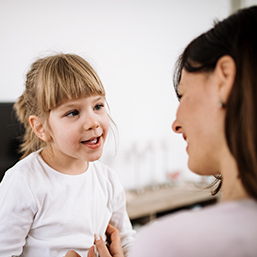
You took the leap and signed your child up for day camp. You’re excited for them to experience days out playing in the sun, learning life skills, making friends, and exploring new places.
But, you may also be wondering what steps you can take leading up to the “big day” to properly prepare them for the adventure. As beneficial (and fun!) as camp is, new experiences can be intimidating for children of any age.
There are several things you can do for and with your child in the days leading up to camp that can help temper their anxious feelings and worries.
Involve them
One of the scariest things about a new situation is feeling like you are not in control.
Give your child back some of that power by allowing them to choose what they want to take with them. Let them pack their own bags (with help from the list of required items from the camp).
Jessica Miller Switzer, executive director of the Alberta Camping Association, says it can be helpful to let them pack a comfort item like a favorite toy or family photo.
“Reassure them that it's normal to feel a bit anxious, and it's an opportunity for growth,” she says.
Be positive
You can also expect to feel some apprehension, especially if this is your child’s first time at camp.
However, Jessica says, it’s important to avoid expressing your own anxieties about separation to your child.
“Develop a positive attitude towards new experiences,” she adds, “and build excitement by creating a countdown to the camp start date.”
You can also share positive stories or experiences from others who enjoyed camp.
“If you attended camp as a child, share your positive experiences to create a connection,” says Jessica.
“Discuss with the child that not every moment will be perfect, but challenges are opportunities to learn and grow.”
Arm them with information
Jessica says it is important to familiarize your child with the camp's activities and routines.
“Address their concerns and discuss the positive aspects of the camp,” she says.
“Let your child know that it's normal to feel homesick, but those feelings usually fade as they become more immersed in camp activities.”
Many camps will give an example of what the average day looks like, what a typical schedule is, and special days that your child can look forward to in their welcome package.
Encourage your child to ask questions and express their concerns to you, and be honest with them. If you don’t know the answer, tell them and let them know you will investigate and find out together.
Get practical
Keeping busy can take your child’s mind off their trepidation around going to camp. There is much to be done before you send them off, so let them take the reins on some tasks like labelling all their belongings with their name.
Combine the camp’s packing checklist with one of your own to ensure they have all the items they will need.
There are a few self-care skills that you will need to make sure your child can do before making the trek to camp as well. These include applying sunscreen, dressing themselves, and staying hydrated.
Other valuable skills you can work on that can help make their camp experience better include being able to follow simple instructions and cooperating well with others.
Be open
Jessica says attending an open house at a camp allows parents and children to familiarize themselves with the environment.
“It provides an opportunity to meet staff, ask questions, and ease any concerns,” she adds.
Talking to parents of other campers is another great way to learn more about the camp experience before your child attends.
“They can share tips, experiences, and address specific questions,” says Jessica.
Familiarize yourself with the camp's policies, rules, and regulations to ensure a smooth experience for both you and your child.
Don’t forget to communicate any special needs, allergies, or health considerations with camp staff. It can also be helpful to share other information like your child’s likes and dislikes with counselors before camp.
Let them shine
Take some time before the big send-off to work on your child’s resilience and executive functioning.
“Encourage decision-making and problem-solving skills to boost your child's independence,” says Jessica.
You can do this by asking your child to participate in solving a small family problem like the fact that they and their sibling both have extracurriculars at the same time on the same day, and only one parent will be home to drive them.
Social skills are also an incredibly important part of the camp experience. They will be required to get along with many other children from all walks of life at camp.
“Talk to your child about making new friends and being inclusive,” says Jessica.
“Roleplay social situations to boost their confidence.”
When dropping off your child, remain positive and reassure them. A cheerful farewell can set a positive tone for their camp experience. Don’t forget to take a photo of your happy camper to keep as a memory and as a conversation starter.
Once your child is back from camp, engage in a conversation about their experiences, emphasizing the positive aspects.
“Celebrate their achievements and growth during camp,” says Jessica.
Learn more at albertacamping.com.
Stacie is the associate editor of Calgary’s Child Magazine. CCM
See our related articles:
Calgary’s Child Magazine © 2024 Calgary’s Child